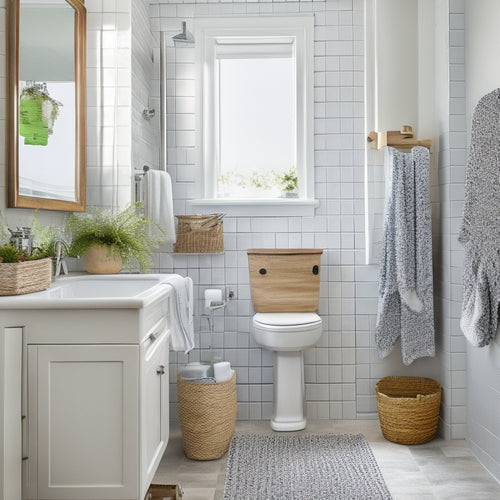
Solar Battery Systems: Costs, Brands, Installation Explained
Share
Solar battery systems, an essential component of renewable energy solutions, offer a reliable and efficient way to store excess energy generated by solar panels for later use. The total system cost ranges from $8,000 to $16,000, influenced by capacity, brand, and installation factors. Battery prices vary from $6,000 to $13,000, with prices per kWh between $600 and $1,000. Leading brands like Tesla, Generac, LG Chem, and Enphase offer unique features and capacities. To make an informed decision, it's important to take into account system size, power output, battery chemistry, and installation costs. Exploring the nuances of each factor will help determine the best system for your energy needs.
Key Takeaways
• Solar battery system costs range from $8,000 to $16,000, depending on capacity, type, and brand, with installation costs between $2,000 and $3,000.
• Battery prices vary from $6,000 to $13,000, with prices per kWh between $600 and $1,000, and factors like system size, power output, and chemistry impacting costs.
• Top solar battery brands, including Tesla, Generac, LG Chem, and Enphase, offer unique features and capacities, with performance metrics like capacity, power output, and efficiency to consider.
• Installation costs are influenced by capacity, compatibility, labor costs, and inverter type, with total installation costs ranging from $8,000 to $16,000.
• Incentives like the 30% Residential Clean Energy Credit and federal tax credits can offset upfront costs, making solar battery systems more suitable for areas with frequent outages or off-grid systems.
Solar Battery System Costs
In order to comprehend the cost breakdown, it is crucial to take into account the capacity, type, and brand of the system. When making budget considerations, it is vital to factor in the installation cost, which can range from $2,000 to $3,000, depending on the complexity of the project.
A thorough cost breakdown can help homeowners make informed decisions about their solar battery investment. By evaluating the total cost and weighing the benefits, individuals can determine if a solar battery system is a viable option for their energy needs.
Battery Prices and Factors
Solar battery prices vary widely, ranging from $6,000 to $13,000 on average, with prices per kilowatt-hour (kWh) typically falling between $600 and $1,000.
A capacity comparison reveals that batteries with over 25 kWh capacity can exceed $25,000.
Efficiency analysis shows that different battery types impact efficiency, lifespan, and upfront costs.
Technology comparison is crucial, as it affects the price range. For instance, lithium-ion batteries are more expensive than lead-acid batteries.
When evaluating solar battery prices, consider factors such as system size, power output, and battery chemistry. Understanding these factors will help you make an informed decision when selecting a solar battery system that meets your energy needs and budget.
Top Solar Battery Brands
Leading manufacturers like Tesla, Generac, LG Chem, and Enphase offer a range of solar battery solutions, each with unique features, capacities, and price points that cater to diverse energy storage needs.
When evaluating these top brands, it is important to take into account performance metrics such as capacity, power output, and round-trip efficiency. A performance comparison of these brands reveals that Tesla's Powerwall excels in terms of capacity, while Generac's PWRcell boasts high power output. LG Chem's RESU and Enphase's battery solutions offer a balance of capacity and affordability.
Customer reviews also play a significant role in the decision-making process, with many homeowners praising Tesla's sleek design and Generac's reliable performance. By assessing these factors, homeowners can make an informed decision about which solar battery brand best suits their energy storage needs.
Installation Costs and Factors
Capacity and compatibility considerations notably influence the installation costs of solar battery systems, with labor costs and inverter type playing important roles in determining the overall expense. The cost of installation can vary greatly depending on the specific requirements of the system.
| Cost Factor | Range |
|---|---|
| Solar Battery Unit | $6,000 - $13,000 |
| Installation Labor Cost | $2,000 - $3,000 |
| Total Installation Cost | $8,000 - $16,000 |
Labor costs, ranging from $2,000 to $3,000, and inverter type are critical factors in determining the overall installation cost. Additionally, compatibility with the existing solar panel system is essential to ensure a seamless integration. By understanding these factors, homeowners can make informed decisions when investing in a solar battery system.
Incentives and Suitability
Eligible homeowners can greatly offset the upfront cost of a solar battery system by taking advantage of available tax credits and rebates. The 30% Residential Clean Energy Credit is available until 2032, decreasing to 26% and 22% in subsequent years. Additional local rebates may also be available.
Purchased or loan-financed systems qualify for the federal tax credit, but leased systems do not. When determining system suitability, consider areas with frequent outages, off-grid systems, and net metering users.
The cheapest solar battery option, flooded lead-acid batteries, has a short lifespan and maintenance requirements, making it suitable for off-grid systems. Carefully evaluate system suitability and available incentives to maximize the benefits of your solar battery system.
Frequently Asked Questions
How Long Does It Take to Charge a Solar Battery From Empty?
When it comes to charging a solar battery from empty, the charge time depends on various factors, including the battery's capacity, the solar panel system's power output, and the charging method.
On average, a fully discharged solar battery can take around 5-8 hours to recharge using a standard solar panel system. However, this timeframe can vary greatly depending on daily cycles, weather conditions, and the battery's chemistry.
Can I Use a Solar Battery to Power My Entire Home?
Like a master conductor leading an orchestra, a solar battery can harmoniously power your entire home, but only if the melody of load management is expertly composed.
Achieving energy independence requires a symphony of efficient appliances, strategic energy storage, and a solar panel system that's in perfect harmony.
With the right configuration, a solar battery can be the maestro, orchestrating a seamless flow of energy to power your entire home.
Are Solar Batteries Prone to Overheating or Thermal Runaway?
Solar batteries are designed to mitigate overheating risks through advanced cooling systems and clever battery design. Thermal management systems, such as heat sinks, fans, and ventilation, help regulate battery temperature.
Additionally, battery design features like compartmentalization, thermal insulation, and phase-change materials further reduce the risk of thermal runaway. While overheating is possible, modern solar batteries are engineered to operate within safe temperature ranges, ensuring reliable and safe performance.
Can I Install a Solar Battery System Myself?
While it's important to tackle a solar battery system installation solo, we must caution against it. Without proper DIY skills and knowledge of local regulations, you may compromise the system's safety and efficiency.
In fact, incorrect installation can even void warranties. It's essential to consult with certified professionals to guarantee a seamless integration with your existing solar panel system and compliance with local building codes.
Do Solar Batteries Require Regular Maintenance or Replacements?
Solar batteries typically require minimal maintenance, but regular system monitoring is crucial to guarantee peak performance and extend lifespan.
Most manufacturers provide a battery warranty, usually ranging from 10 to 15 years, which covers defects and performance degradation. During this period, owners may need to perform occasional software updates and make sure the system is properly configured.
However, some batteries, like flooded lead-acid, may require more frequent maintenance, such as watering and cleaning.
Related Posts
-

Mastering Small Closet Organization: Proven Strategies Unlocked
You're about to reveal the secret to transforming your small closet into a functional haven, where every item has its...
-

Bathroom Storage Hacks for Small Spaces Revealed
You're about to discover the ultimate bathroom storage hacks for your small space! Start by maximizing your vertical ...

